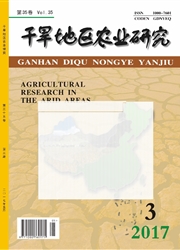

 中文摘要:
中文摘要:
结合预警理论,建立了区域生态安全的“状态-胁迫-免疫”(State- Danger- Immunity,SDI)动态预警模型.运用BP人工神经网络对甘肃省1997-2009年生态安全进行定量评估,并对2010-2015年生态环境安全进行动态预警.研究表明:(1)BP人工神经网络模拟效果较好,将其用于生态安全预警研究是可行的;(2)甘肃省1997-2009年的生态环境从“较安全”状态到“较不安全”状态,呈逐渐下降的趋势;(3)预警结果显示,甘肃省2010-2015年生态环境愈加恶化,人均工业废气排放量、人均耗能量、工业固废利用率及环境污染治理投资不足将成为影响甘肃省生态安全的主要因素.
 英文摘要:
英文摘要:
Combining with the theory of early-warning, the "State-Danger-Immune" (SDI) model was used as a concept model of early-warning indicators. As a case study, BP artificial neural network model was employed to assess quantitatively the ecological safety situation of Gansu Province from 1997--2009. Then the early-warning was carried out with the model for ecological safety from 2010--2015. The results showed that: (1) It was feasible to do early,warning study on ecological safety by using BP artificial neural network model because of its high precision of simulation result; (2) The ecological environment shifted from "relatively safe" to "relatively unsafe" state from 1997--2009, which demonstrated that the overall status of ecological safety in the province undergwent a decreasing trend. (3) Under the early-warning results, the ecological environment in Gansu from 2010--2015 is getting worse, and the status of resources safety and ecological safety is not optimistic. The industrial waste gas emissions per capita, energy consumption per capi- ta, rate of comprehensive utilization of industrial solid waste, insufficient investment in environmental pollution control will be the main factors of ecological safety in the province.
 同期刊论文项目
同期刊论文项目
 同项目期刊论文
同项目期刊论文
 期刊信息
期刊信息
